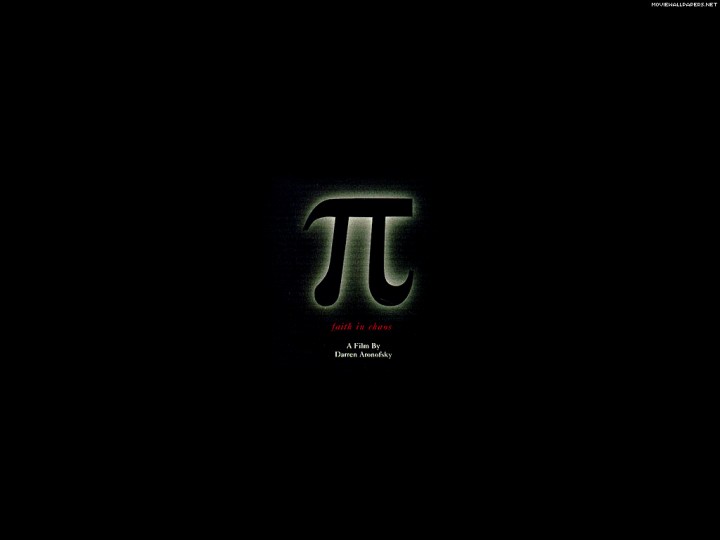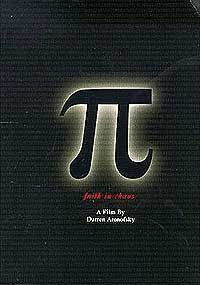A late nineties, black-and-white psychological thriller directed by Darren Aronofsky and starring Sean Gullette, Pi is one of the most unique pieces of cinematography for its time. With a daring story line, convincing dialogue and character development, there’s barely anything wrong with Pi.
Perhaps some might criticize its use of the black-and-white and at times convoluted image juxtapositions when Aronofsky could have just as easily used color and been more lucid in the story arch. But, much like a Hitchcockian thriller, the black-and-white and odd images gives the film suspense and complements the style in which Aronofsky was going for. So, while it might be a little artsy, it is very well done and really demonstrates the mental illness that the main character, Max Cohen, experiences throughout the film.
As the title suggests, the film does use mathematical concepts and number theory. But it’s not so muddled down with professional lexicon that it’s incomprehensible to understand what’s happening. In fact, while the film focuses on a number theorist trying to crack the code to a pattern in the stock market, much of what occurs is purely psychological.
Pi expresses the universal desire to know the ineffable, and then to fail, go through a mental breakdown, and yet still try again. While the message might not be identifiable with everyone who watches, Pi does capture a genuine human interaction.
For those that don’t really care about genuine human interaction, then still Pi has something for you: conspiracy theories. Throughout the film Max Cohen searches for the pattern in the stock market, which of course interests some major forces into the rather reclusive protagonist. The most salient of which were religion versus this rather ambiguous and ubiquitous corporation. The religious aspect was represented by Hassidic Jews, and the corporate force an unidentified Wall Street firm that bribes him with a rare and unreleased computer chip.
By some inexplicable chain of events that can’t really be described and it would be better if you just watched the movie, Max Cohen discovers a 216 digit number that somehow has significance for both the stock market and the Torah. The Wall Street firm wants the code in order to manipulate the stock market in their favor, and the Hassidic Jews want the number because they believe it is the unspeakable name of God that was lost several thousand years ago and will bring about the messianic age.
Either way, Cohen refuses both forces, and in a somewhat martyr-like act of sacrifice, he performs a lobotomy on himself with only an average, run-of-the-mill power drill. Because of his self-lobotomy, Max loses his mathematical abilities and intellect, but, we’re led to believe, he’s finally happy.





